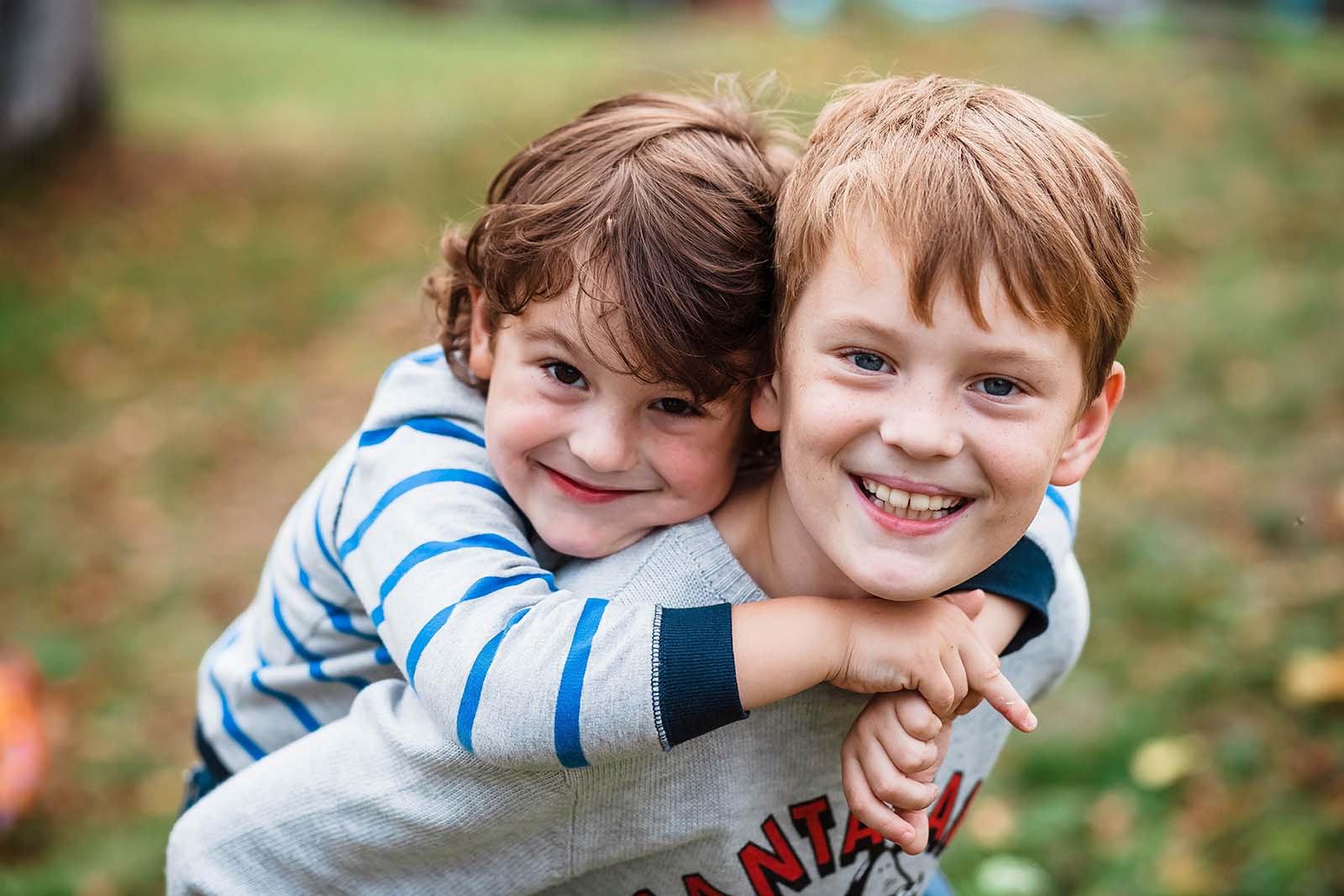
The bond between siblings is as unique as it is special. Whether you have one sibling or a dozen, there’s no denying the intricate dynamics that exist within a sibling relationship. From sharing childhood memories to engaging in friendly sibling rivalry, siblings have a profound impact on each other’s lives.
In this article, we will explore 18 fascinating facts about siblings that might surprise you. From the benefits of growing up with siblings to the unique characteristics of sibling relationships, we’ll delve into the various aspects that make siblinghood such an intriguing topic.
Whether you’re curious about birth order effects, sibling rivalry, or the lifelong connections built between brothers and sisters, this article will shed light on the intricacies of sibling relationships. So, let’s dive into these intriguing facts and get ready to appreciate the bond and complexities of having siblings!
Key Takeaways:
- Siblings share a special bond and influence each other’s lives in many ways, from shaping personality to providing emotional support and lifelong friendships.
- Despite genetic similarities, siblings can have different physical traits and talents, and their relationships can evolve into deep bonds and friendships as they grow older.
Siblings Share 50% of Their DNA
Siblings, whether born from the same parents or adopted into the same family, typically share around 50% of their DNA. However, the exact percentage may vary due to the process of genetic recombination during reproduction.
Siblings Can Have Different Blood Types
While siblings share genes from their parents, it is possible for them to have different blood types. This is because blood type is determined by specific combinations of genes inherited from both parents.
Siblings Influence Each Other’s Development
Siblings play a crucial role in shaping each other’s development. From language acquisition to social skills and personal interests, they have a significant impact on one another’s growth and identity formation.
Sibling Rivalry is Common
Sibling rivalry, characterized by competition and conflict between siblings, is a common phenomenon. Whether it’s vying for parental attention or competing for resources, siblings often engage in rivalry as they navigate their relationships.
Siblings Can Have Different Physical Traits
Despite their genetic similarities, siblings can exhibit different physical traits. Variances in height, hair color, eye color, and other characteristics can be attributed to genes randomly assorting during the process of inheritance.
Siblings Provide Emotional Support
Siblings often serve as a source of emotional support for each other. They share experiences, provide a listening ear, and offer advice during challenging times, fostering a bond that extends beyond familial ties.
Birth Order Can Influence Personality
Research suggests that birth order can have an influence on personality traits. First-born siblings often exhibit leadership qualities, while youngest siblings may possess more free-spirited and outgoing personalities.
Siblings Can Have Different Talents and Interests
Siblings frequently develop their own unique talents and interests that may differ from one another. While some siblings may excel in sports, others may have a knack for music, highlighting the diverse range of individual strengths within a family.
Siblings Provide Long-lasting Relationships
Sibling relationships are known for their longevity. Unlike friends or romantic partners who may come and go, siblings are often present throughout each other’s lives, offering companionship and support across different stages.
Siblings Can Develop a Special Language
Some siblings develop a secret language or special way of communicating with each other. This private form of communication helps strengthen their bond and often evolves as a result of spending extensive time together growing up.
Siblings Share Memories and Childhood Experiences
Siblings share a common history and childhood experiences that can evoke nostalgia and create a unique sense of belonging. The shared memories build a foundation for storytelling and reminiscing as they grow older.
Siblings Can Provide a Sense of Identity
Siblings contribute to each other’s sense of identity by providing a source of comparison and reflection. They often shape each other’s self-perception and help explore their individuality within the context of their shared familial background.
Siblings Can Form Lifelong Friendships
Sibling relationships have the potential to form lifelong friendships. With shared values, experiences, and support, siblings often become close confidants and trusted allies as they navigate life’s challenges together.
Siblings Can Have Different Attachment Styles
Each sibling may develop a unique attachment style based on their interactions with parents and early experiences. This can result in variations in how they approach relationships and form emotional connections throughout their lives.
Siblings Provide a Built-in Support System
Siblings serve as a built-in support system during times of need. Whether it’s lending a helping hand, offering advice, or simply being there to listen, siblings can provide valuable support and understanding.
Siblings Can Influence Career Choices
Siblings can have an impact on each other’s career choices and aspirations. Through sharing interests, discussing potential paths, and providing guidance, they can help shape each other’s professional journeys.
Siblings Can Experience Sibling Separation Anxiety
Separation from a sibling, whether due to distance, education, or other factors, can lead to sibling separation anxiety. The bond between siblings is strong, and sudden or prolonged separation can cause distress and longing for their presence.
Siblings Can Grow Closer with Age
As siblings mature and gain life experiences, they often grow closer. What may have been a typical sibling rivalry in childhood can transform into a deep bond and friendship as they navigate adulthood together.
Conclusion
Having siblings is a truly unique and special experience. Whether you have one sibling or many, they play a significant role in shaping our lives and creating lifelong bonds. From the joys of shared memories to the occasional sibling rivalry, your brothers and sisters are there with you through thick and thin.
Understanding the dynamics of sibling relationships can provide valuable insights into family dynamics and individual growth. Whether you’re the oldest, youngest, or somewhere in between, embracing the uniqueness of your sibling connections can lead to a deeper sense of appreciation and love.
So cherish the moments spent with your siblings, as they are the ones who know you best and will always have your back. Celebrate the laughter, the tears, and everything in between, for the bond of siblings is truly something to be treasured.
FAQs
1. How many siblings is considered a large family?
A large family typically consists of more than three siblings. The exact number can vary depending on cultural and personal preferences.
2. What are the benefits of having siblings?
Having siblings can provide various benefits such as increased social support, improved social skills, shared responsibilities, and lifelong friendships.
3. Are sibling relationships always harmonious?
No, sibling relationships can have their ups and downs. While some siblings may have a close and harmonious relationship, others may experience conflicts and rivalries. However, these challenges can also contribute to personal growth and development.
4. Are there any studies on the impact of siblings on personal development?
Yes, there have been numerous studies exploring the influence of sibling relationships on various aspects of personal development, including social skills, emotional well-being, and cognitive development.
5. Can siblings have different personalities?
Absolutely! Siblings can have different personalities, interests, and characteristics. This diversity adds richness to the family dynamic and allows for unique perspectives and experiences.
6. How can I strengthen my relationship with my siblings?
There are several ways to strengthen your relationship with your siblings, such as spending quality time together, engaging in open and honest communication, showing support and understanding, and resolving conflicts in a respectful manner.
Siblings share an unbreakable bond, forged through shared experiences and DNA. Celebrating this special connection, National Siblings Day honors brothers and sisters worldwide. May 2nd marks another opportunity to appreciate siblings on National Brothers and Sisters Day. Firstborns often pave the way, but secondborn children possess unique traits and abilities that shape their paths and influence family dynamics.
Was this page helpful?
Our commitment to delivering trustworthy and engaging content is at the heart of what we do. Each fact on our site is contributed by real users like you, bringing a wealth of diverse insights and information. To ensure the highest standards of accuracy and reliability, our dedicated editors meticulously review each submission. This process guarantees that the facts we share are not only fascinating but also credible. Trust in our commitment to quality and authenticity as you explore and learn with us.


